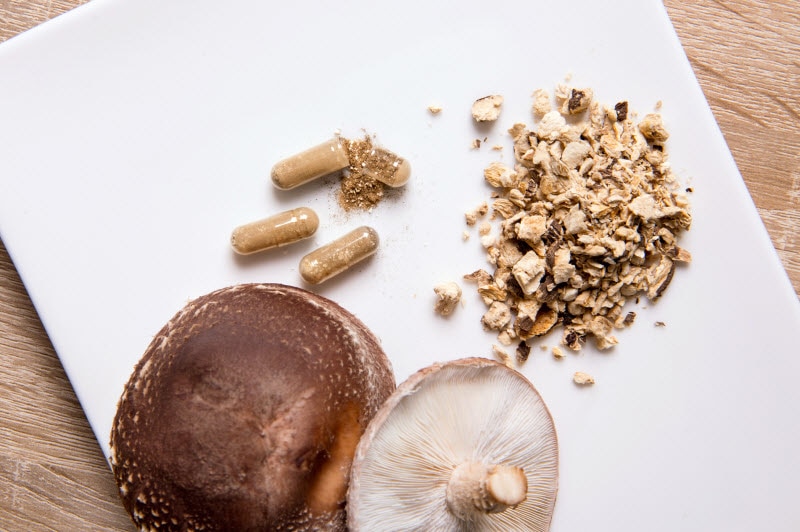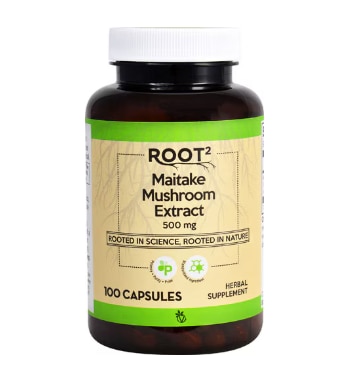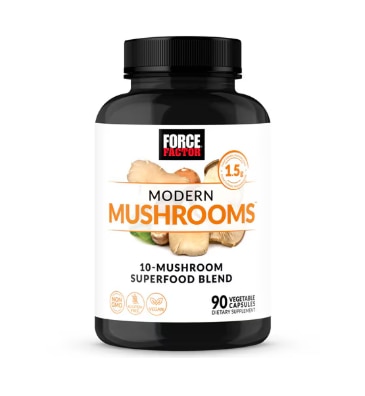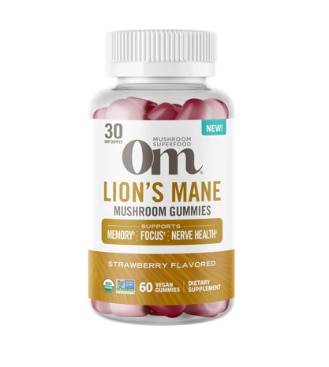The North American market for functional mushroom supplements is mushrooming. A forecast from Grand View Research anticipates the size of the mushroom market covering the U.S., Canada and Mexico will grow from $612.2 million in 2024 to $1.41 billion in 2030.
So, what’s behind the rising popularity of functional mushroom supplements, whose benefits supposedly go beyond nutrition?
A longtime staple of Chinese medicine, functional mushrooms may offer a number of health benefits, such as supporting memory, focus, mood and longevity, according to University of Utah Health. They might even help protect cellular health, says Memorial Sloan Kettering Cancer Center.†
“Unfortunately, these claimed benefits don’t stack up to the research,” says University of Utah Health. “While some of the claimed benefits of functional mushrooms have some research to support their use, most of the research supporting these claims is done in animal models, and more human research is needed.”
How to Choose the Best Functional Mushroom Supplements
In many cases, people who believe in the power of functional mushrooms are turning to mushroom supplements. These supplements come in the form of capsules, coffees, gummies, powders, teas and tinctures, for example.
So, if you want to hop on the mushroom-supplement bandwagon, how do you choose the best supplements? Here are seven tips.
1. Consider the manufacturer’s reputation
The Mushroom Revival website suggests selecting an established mushroom-supplement brand “that is devoted to providing its customers with the excellent benefits of functional mushrooms. You can gain insight into a supplement brand’s reputation by taking a look at its product recall history and their [product] certifications.”
2. Weigh the product’s certifications
Any mushroom supplement you buy should have undergone third-party lab testing, Mushroom Revival says. In addition, you should seek out brands that sell non-GMO and USDA-certified organic supplements. And depending on dietary or medical needs, you should ensure that the seller has secured external certification to ensure the supplements are Kosher, vegan or gluten-free, says Mushroom Revival.
3. Know the parts of mushrooms
Experience Life, a publication of Life Time Fitness, points out that we typically look at a mushroom solely as the above-ground fruiting body of the fungus, which stems from the mycelium, the rootlike system that grows in soil, wood and other materials.
“Picture the mycelium as a giant, far-reaching underground tree and mushrooms as the fruit,” says Experience Life.
Fruiting bodies and mycelium offer loads of health benefits, mycologist Christopher Hobbs, who studies fungi, tells Experience Life. But in some instances, the fruiting body contains less starch and provides more medicinal benefits, according to the magazine.
What does all of this mean? Figure out how much of a mushroom supplement consists of the fruiting body and how much consists of the mycelium. Doing so might lead to greater health benefits.
4. Look for fillers
Avoid mushroom supplements loaded with grains and fillers to bulk up the products without boosting the nutritional value, says Mushroom Revival.
5. Consider the price
The price of a mushroom supplement can help determine its quality.
“Do not opt for supplements that are too cheap, as the quality of these products may not be up to snuff, due to the lower price and profit margin,” says Mushroom Revival. “Try to aim for products in the average range, with a competitive price that isn’t suspiciously low.”
6. Be suspicious of health claims
Memorial Sloan Kettering Cancer Center warns that many mushroom supplements base health claims on lab studies where the level of active ingredients was much higher than the amount found in a few capsules. As a result, health claims may be skewed.
Furthermore, a supplement might not contain the active ingredient used in clinical trials of the product, according to Memorial Sloan Kettering. For instance, many mushroom supplements contain only crude amounts of mushroom powder or mycelium that weren’t tested in the clinical trials, the hospital says.
Keep in mind that the FDA doesn’t require makers of mushroom supplements to prove safety and effectiveness. In other words, it doesn’t verify health claims made by mushroom-supplement manufacturers.
Given that so many mushroom supplements are sold today, health claims can differ greatly from one manufacturer to another, according to a study published in 2021 by the International Journal of Molecular Science. That may be true even if species, doses, preparations and manufacturing practices are alike, the study says.
“In the absence of standardization, significant differences can be found even in different batches from the same manufacturer,” according to the study.
†These statements have not been approved by the Food and Drug Administration. These products are not intended to diagnose, treat, cure or prevent disease.




